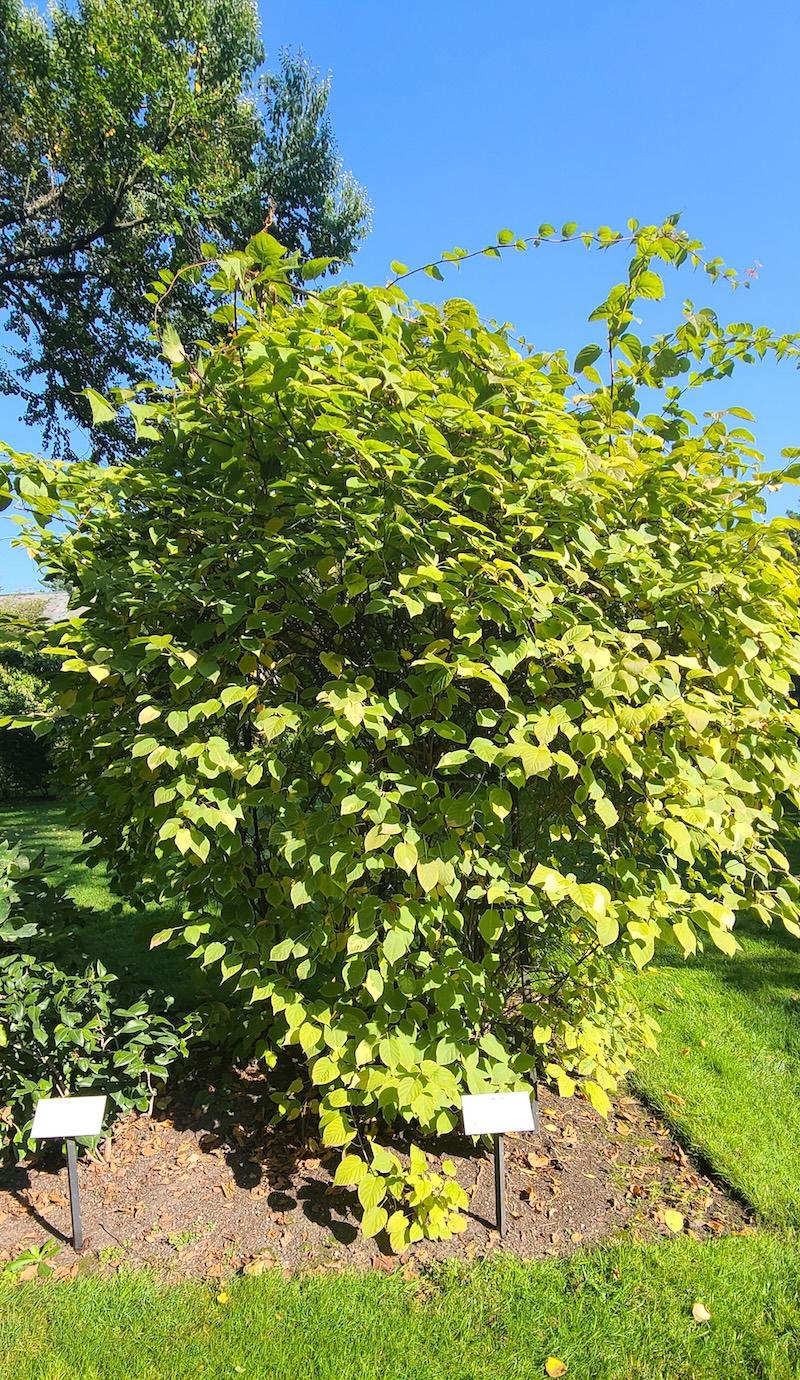
Earlier this year, Dr. Jessica Fitzgerald and her colleagues at the the New Zealand Institute of Bioeconomy Science (BSI) reached out to Dr. Pratima Devkota at Michigan State University (MSU) after coming across her research on Armillaria root rot. The Kiwifruit Breeding Centre (KBC) has developed a new breeding strategy for diseases that have been causing issues in the kiwifruit industry for some time. Jessica is now at MSU for a month-long research-capacity-building-training visit hosted by Dr. Devkota. This collaboration underscores how global plant health challenges are connected.
During her stay, Jessica is receiving training and gaining exposure to the breadth of published work on Armillaria root rot at MSU. This includes phenotypic assays, microscopy, histology, and field visits to commercial orchards all aimed at identifying both short- and long-term Armillaria solutionsfor Prunus species. What began as a mentorship experience quickly grew into a true scientific exchange and a collaboration that is bridging continents.
 One highlight of Jessica’s visit was uncovering the story of The mystery of the Michigan State Kiwi . MSU hardy kiwiberry originally first being spotted near campus tennis court is now planted in the Beal Botanical Garden. The serendipity was striking: she came to Michigan to learn how to screen kiwifruit roots for root rot disease, only to find a hardy kiwi plant thriving on campus. Motivated by that story, Pratima and Jessica walked to the Beal Botanical Garden to find it. As Pratima remarked, “It took us a while to find it just like in research, where persistence is often key to uncovering answers to our questions.”
One highlight of Jessica’s visit was uncovering the story of The mystery of the Michigan State Kiwi . MSU hardy kiwiberry originally first being spotted near campus tennis court is now planted in the Beal Botanical Garden. The serendipity was striking: she came to Michigan to learn how to screen kiwifruit roots for root rot disease, only to find a hardy kiwi plant thriving on campus. Motivated by that story, Pratima and Jessica walked to the Beal Botanical Garden to find it. As Pratima remarked, “It took us a while to find it just like in research, where persistence is often key to uncovering answers to our questions.”
Reflecting on the collaboration, Pratima added: “Just like the kiwiberry vine climbs upward with support, the partnership between MSU and BSI continues to grow through shared training, techniques, and global connections highlighting MSU’s international reach.”
 Pratima noted that once BSI is ready to launch its project, she plans to visit New Zealand to continue the collaboration in person. Hosting Jessica was, in her words, part mentorship, part scientific and cultural exchange, and entirely a reminder of how international partnerships make research more exciting.
Pratima noted that once BSI is ready to launch its project, she plans to visit New Zealand to continue the collaboration in person. Hosting Jessica was, in her words, part mentorship, part scientific and cultural exchange, and entirely a reminder of how international partnerships make research more exciting.
About Jessica: Dr. Jessica Fitzgerald is a senior research associate at the the New Zealand Institute of Bioeconomy Science (BSI) with the Plant and Food Research Group. She completed her Ph.D. at the University of Otago in 2022, focusing on Zebra chip disease of potatoes. At BSI, she works at the forefront of biosecurity and horticultural pathosystems across multiple crops.
This article was originally published by the College of Agriculture and Natural Resources.
Want to look further into Dr. Pratima Devkota and Dr. Jessica Fitzgerald’s research?
The Infection Process of Armillaria mellea and Armillaria solidipes
Opportunities for Partnership
The MSU Innovation Center is seeking companies and research institutions interested in plant pathology solutions, agricultural biosecurity, and sustainable crop production technologies.
Whether you’re exploring sponsored research, licensing opportunities, or co-developing disease-resistant cultivars and diagnostic tools, we’re ready to collaborate.
Interested in partnering with MSU faculty on global plant health challenges and agricultural innovation?
Visit innovationcenter.msu.edu or contact us to start the conversation.
###
About the MSU Innovation Center
The MSU Innovation Center is Michigan State University’s hub for corporate partnerships, technology commercialization, and startup support. By integrating MSU Technologies, Business Connect, and Spartan Innovations, the Center transforms groundbreaking research into real-world impact. Each year, the Innovation Center helps launch more than 130 discoveries into patented products and startup ventures, advancing economic development and improving lives locally and globally. Through strategic collaborations with faculty, industry, and investors, the Center accelerates innovation from concept to market—empowering Spartans to lead in entrepreneurship, research translation, and public-private partnerships. Learn more at innovationcenter.msu.edu
